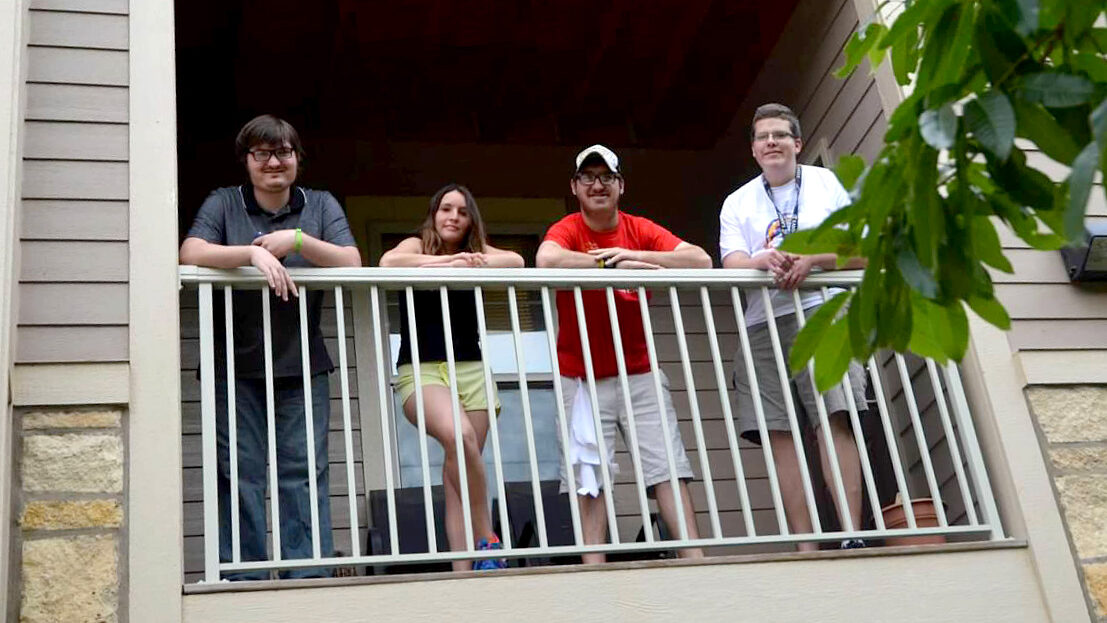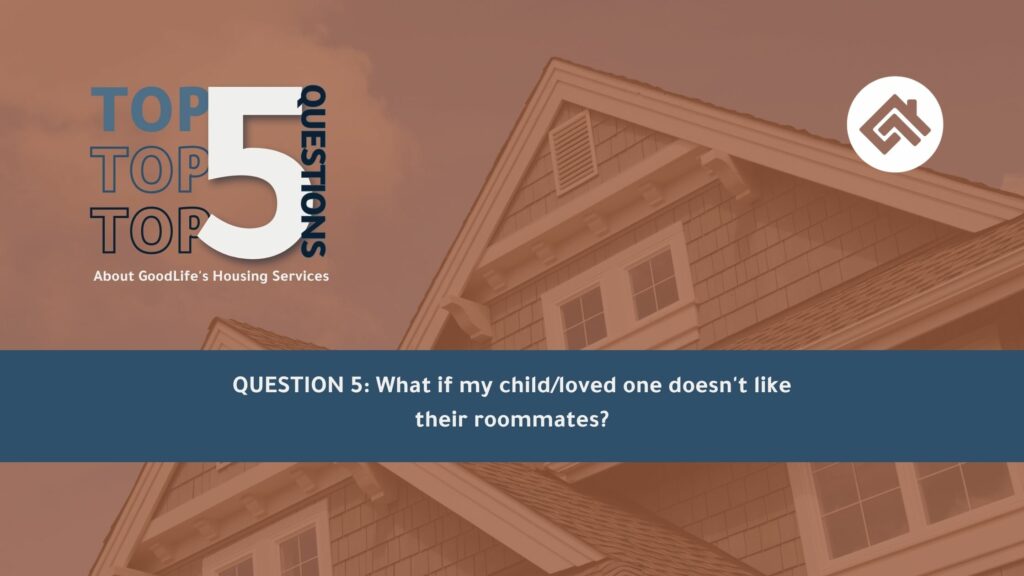Living with roommates can be a fantastic experience. You get to know new people, learn about their interests, and build lasting friendships.
Most of our residents get along with their roommates and enjoy living together. But, what happens if your loved one with intellectual or developmental disabilities doesn’t like their roommates?
If there are any challenges between housemates, our well-trained staff is equipped to handle the situation and find a resolution. We always aim to problem-solve and compromise before changing living arrangements.
In this blog post, we explain our application process, including roommate matching, and discuss the strategies used to help our residents resolve conflicts.
Roommate matching and GoodLife’s application process
We all want to live in a supportive community where we feel safe, happy, and respected. That’s why our team carefully considers each individual’s unique needs when choosing residential services and matching them with roommates.
GoodLife’s thorough application process allows us to get to know each individual really well. This enables us to match roommates based on compatibility and preferences. You can learn more about how to start the application process on our blog.
One of the most important aspects of our application process is roommate matching.
When we receive the application and supporting documents, our team does a full review of the individual’s needs to make sure that we can safely serve them. We want everyone to feel content and supported in their home, and take our time to get to know each person before deciding on placement.
One of the most important aspects of our application process is roommate matching. When we find a potential pairing, we have the individual meet the roommates and tour the residence multiple times to make sure that it’s a good fit. This gives everyone a chance to get to know each other before making a final decision.

If the residential setting and opening are a good match for the individual, we have a transition meeting. This is when we bring in the guardians, case manager, and representatives from our managed care organization to discuss how we will transition the individual to services. From there, we develop a plan and begin moving the individual into their new residence.
What if my child/loved one doesn’t like their roommates?
Even with the most thorough and thoughtful roommate matching process, there may be times when disagreements arise. If this happens, our team works with everyone involved to creatively problem-solve and find the best possible solution. This might involve bringing in additional support, such as a consultant or behavior analyst, to help develop strategies for managing conflict.
We always try to exhaust all other options before moving an individual to a new residence since transitioning is often difficult for the resident, their family, and the staff.
In rare instances, it may be necessary to find a new residence and roommates for an individual. We always try to exhaust all other options before moving an individual to a new residence since transitioning is often difficult for the resident, their family, and the staff. Our preference is to avoid transitions and find solutions that make all individuals feel comfortable in their home. We only make a change if it’s absolutely necessary and in the best interest of all parties.
Conclusion
We understand how important it is to find the right place to live for your loved one with intellectual and developmental disabilities. The caring team at GoodLife takes their time to match roommates and find the best residential service options for each person.
Usually, our process works smoothly, but if there is a challenge, we aim to problem-solve with the roommates, find creative solutions, and use it as a teachable moment. We hope this blog has given you a better understanding of our roommate matching process and how we work to find the best possible solution when any disagreements arise between residents.
If you want to learn more about our residential services, read our blog, Top 5 Questions about GoodLife’s Residential Services. You’ll get an overview of our residential program and answers to our most frequently asked questions.
If you have additional questions or would like more information, please contact Nichole Reiske, GoodLife’s Director of Admissions, at nicholereiske@mygoodlife.org, 913-980-8135. You can also subscribe to our monthly newsletter to get each of our blog posts delivered right to your inbox.


